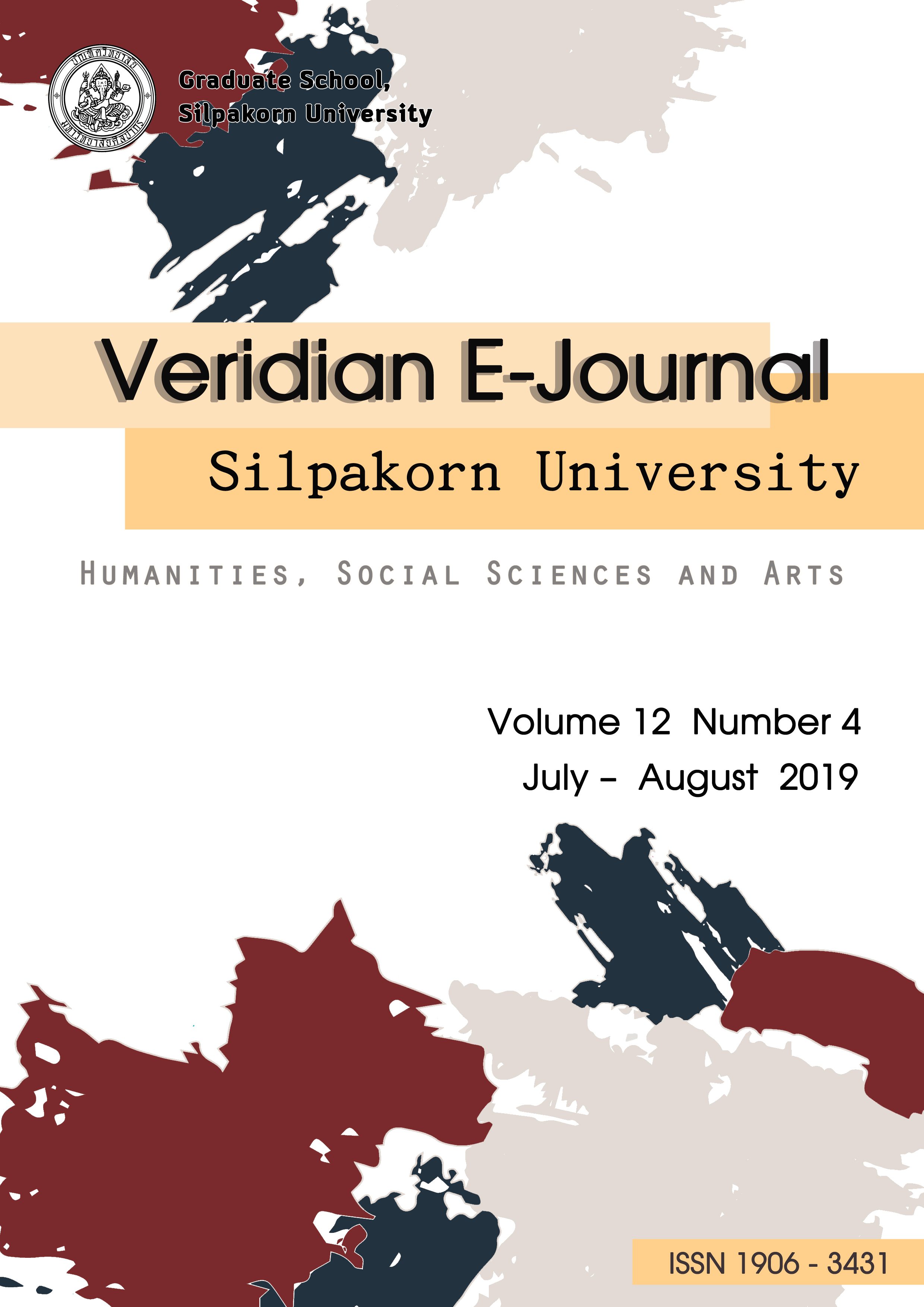อิทธิพลของระบบการบริหารงานที่มุ่งผลการปฏิบัติงานระดับสูงที่มีต่อผลการดำเนินงาน ของวิสาหกิจขนาดกลางและขนาดย่อมในภาคใต้: การศึกษาบทบาทของการรับรู้ การสนับสนุนจากองค์กรในฐานะตัวแปรคั่นกลาง (The Influence of High Performance Work System on Organizational Performance of SMEs in the Southern Region of Thailand: Examining the Mediating Role of Perceived Organizational Support)
Main Article Content
บทคัดย่อ
ระบบการบริหารที่มุ่งผลการปฏิบัติงานระดับสูง หรือ High Performance Work Systems (HPWS) ได้รับการยอมรับว่ามีส่วนสำคัญที่ส่งผลต่อผลการดำเนินงานขององค์กร อย่างไรก็ตาม การศึกษาวิจัยเกี่ยวกับ เรื่องนี้ในบริบทวิสาหกิจขนาดกลางและขนาดย่อม (SMEs) ในประเทศไทยยังมีค่อนข้างน้อย การวิจัยครั้งนี้มีวัตถุ ประสงค์เพื่อ (1) ศึกษาการนำระบบ HPWS มาใช้กับ SMEs ในกลุ่มจังหวัดภาคใต้ของประเทศไทย (2) ศึกษา อิทธิพลของระบบ HPWS ที่มีต่อผลการดำเนินงานของ SMEs (3) ศึกษาบทบาทของตัวแปรการรับรู้การสนับสนุนจากองค์กรในฐานะตัวแปรคั่นกลาง ผู้วิจัยทำการเก็บข้อมูลโดยใช้แบบสอบถามจากกลุ่มตัวอย่างของ SMEs ในภาคใต้ของประเทศไทย ประกอบด้วยพนักงานจำนวน 951 คน จาก 110 SMEs ตรวจสอบสมมติฐานการวิจัยโดยวิเคราะห์ข้อมูลเชิงปริมาณด้วยสถิติ ได้แก่ ค่าเฉลี่ย ค่าเบี่ยงเบนมาตรฐาน ค่าความถี่ และค่าร้อยละ การวิเคราะห์องค์ประกอบเชิงยืนยัน และ การวิเคราะห์โมเดลสมการโครงสร้าง ผลการวิจัยพบว่า SMEs ในภาค ใต้ของประเทศไทยมีการนำ HPWS มาใช้ในระดับมาก (M = 3.67, S.D. = .58) โดยการคัดเลือกพนักงานถูกนำ มาใช้มากที่สุด (M = 3.88, S.D. = .70) ตามมาด้วยการฝึกอบรมและพัฒนา (M = 3.77, S.D. = .69) ส่วนการให้เงินรางวัลตามผลงานและความก้าวหน้าในอาชีพ และ การเลื่อนตำแหน่งถูกนำมาใช้น้อยที่สุด (M = 3.49,S.D. = .81 และ M = 3.50, S.D. = .72 ตามลำดับ) ในส่วนของสมการโครงสร้างพบว่าตัวแปรระบบการบริหารงานที่มุ่งผลการปฏิบัติงานระดับสูงสามารถอธิบายความแปรปรวนในผลการดำเนินงานของ SME ได้ร้อยละ 13.5 โดยส่งผ่าน การรับรู้การสนับสนุนจากองค์กรของพนักงาน (.11; 95% CI [0.049, 0.170])
It is well-established that High Performance Work System (HPWS) plays an important role in bringing about organizational performance. However, there is a lack of such research in the context of small and medium enterprises (SMEs) in Thailand. The research aimed (1) to explore the extent to which HPWS is adopted in among Thai SMEs (2) the extent to which HPWS influences Thai SMEs’ organizational performance, and (3) to examine the mediating role of employees’ perceived organizational support (POS). This research sample comprised 951 employees from 110 SMEs in the South of Thailand. Data were analyzed by using means, standard deviation, frequency, percentage, confirmatory factor analysis (CFA), and structural equation modeling (SEM). The results showed that, overall, HPWS is adopted among the SMEs at a high level (M = 3.67, S.D. = .58). Recruitment and selection is implemented at the highest level (M = 3.88, S.D. = .70) followed by training and development (M = 3.77, S.D. = .69), whereas performance-based compensation and career growth and promotion practices are implemented at the lowest levels (M = 3.49, S.D. = .81 and M 3.50, S.D. = .72 respectively). Also, the proposed theoretical model indicated that HPWS accounted for 13.5 percent of the variance in organizational performance through the mediating role of POS (.11; 95% CI [0.049, 0.170]).

